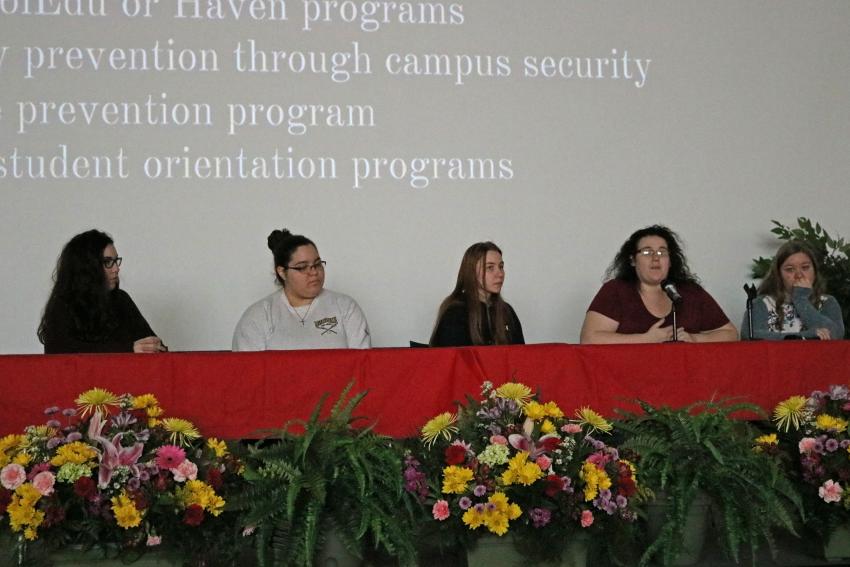Sociology, Anthropology, and Criminal Justice Shatters Silence on Preventing Sexual Violence

By Caitlin Joyce ’20
In April, the Sociology, Anthropology, and Criminal Justice Department hosted a two-part event that presented information on victimization and prevention methods.
Shatter the Silence on Sexual Violence, held April 16 and 18, featured presentations and academic posters by students in the Women & Crime, Victimology, and Gays & Lesbians in American Society courses. Dr. Anne Mahar, associate professor of Criminology, Dr. Favian Guertin-Martín, associate professor of Criminology, and Dr. Ana Maria Garcia, associate professor of Sociology, directed their students in creating the event. Nora Nelle, the University’s Title IX Coordinator, answered questions about sexual violence and resources available to students.
“I believe educating people is the first step to dismantling rape myths and creating a safer community,” said Talia Giles ‘18, a Sociology student in the Women & Crime course who helped plan the event. “Even as many of us were doing research for our own presentations, there were things we didn’t get right at first or simply didn’t know. It was interesting to see how much we all learned in the process of preparing the forum in addition to teaching others.”
On April 16, students in the Victimology and Gays & Lesbians in American Society classes led a session in addressing sexual violence victimization on college campuses in the Greater Philadelphia area, how sexual violence affects the LGBT student community, and resources for LGBT students at Arcadia. Students also performed spoken word poetry drawn from testimonials of sexual violence survivors. Anonymously submitted questions and comments from those in attendance helped to facilitate discussions.
On April 18, students of the Women & Crime class discussed methods of addressing sexual assault and asked which safety measures students would like to see implemented at Arcadia. Presentations provided insight into educational programs for incoming first-year students, how to recognize signs of an unhealthy relationship, the process of reporting through the University’s Title IX Office, and counseling and support programs for survivors of sexual violence.
After the presentations, the audience split into groups to explore their thoughts on the sexual violence preventative methods covered in the presentations. The final discussion of the event challenged attendees to think on which solutions presented were best, as well as alternative ways students and faculty could make the University a safer place.


